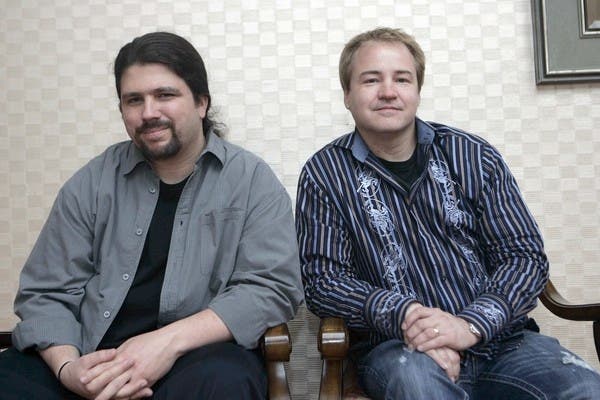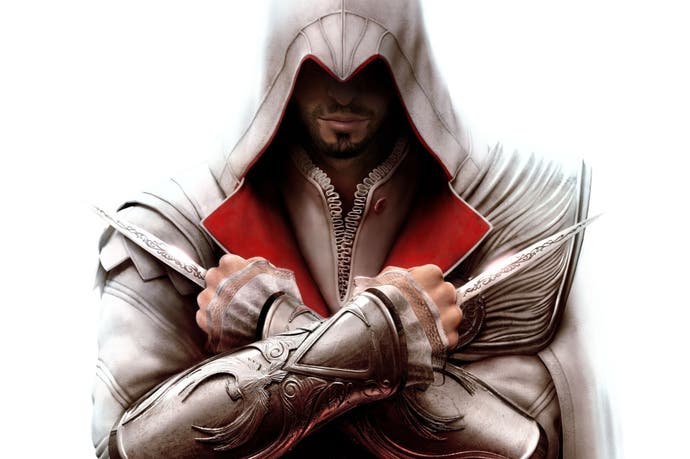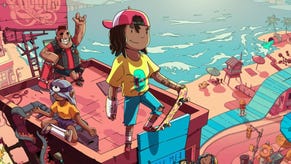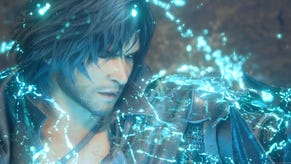Saturday Soapbox: IP Freely?
When there's no incentive for big name creators to do their best work for a publisher, we all suffer.
Pop quiz: can you name a major new DC or Marvel superhero character from the last twenty years? Not a supporting character, and not a new identity for an existing character, but a completely new creation that has taken its place alongside the likes of Batman, Spider-Man, The Hulk and Superman in the pop culture pantheon. It's harder than it sounds. You'd probably have to go back to Wolverine, introduced in the pages of The Incredible Hulk in 1974 and popularised in the pages of X-Men, for your answer. Why is this? Because the business practices of the comic book industry made it inevitable.
The "work for hire" contracts signed by early comic book writers and artists ensured that anything created for publishers such as Marvel and DC automatically became the intellectual property of those companies. At the time, few thought anything of it, as comics were seen as disposable entertainments. As the years passed, and comic book characters became licensing goldmines, those creators began to realise just how much they'd signed away. It was only in January of this year that the courts finally decided that the estate of Jerry Siegel, who co-created Superman 75 years ago, had no claim over the character. It all belonged to Warner Bros.
That's just one of many lawsuits filed by creators against the likes of Marvel and DC over the years, and none have been successful. That the growth in awareness of comic book creator's rights coincides with a near total halt on the appearance of worthwhile new characters is no coincidence. If you're a talented artist or writer bursting with ideas, why would you introduce them in the pages of a comic where they'd immediately belong to someone else?

It now seems like we're seeing something similar happening in games. Just this week, Ubisoft announced it was suspending development on Patrice Désilets' 1666 project "for an undisclosed time". According to Superannuation, this is a way of avoiding a clause in Désilets' contract with original publisher THQ, which would revert the IP rights to him in the case of cancellation. If this is the case, then by suspending the project indefinitely but not officially cancelling it Ubisoft gets to keep the IP from returning to its creator.
There are echoes here of the grisly legal battle fought by Jason West and Vince Zampella against their former employer, Activision. At the heart of the claims was one glittering prize: ownership and participation in the success of the lucrative Modern Warfare brand. It was Infinity Ward's Modern Warfare makeover that transformed Call of Duty from dependable World War 2 shooter to a billion-dollar cash cow, and both West and Zampella felt that, having swelled the Activision coffers considerably, the fruits of their labours were not being shared fairly.
It's no surprise that when Zampella and West left Infinity Ward to set up Respawn, and when Patrice Désilets left Ubisoft for THQ after co-creating Assassin's Creed, the question of IP ownership was a key element of their contracts with new publishing partners. After all, these were the superstars of the development world, inventors of the two biggest franchises of the last decade. Any clause that might prise them from their corporate berths was bound to look like a reasonable compromise to rival publishers.
Even in less fractious splits, such as the one that found Bungie separating from Microsoft, ownership was a key element of their future. Halo resides with Microsoft. Destiny belongs to Bungie. Talk to any game developer with a few years under their belt, and they'll tell you of that special personal project, that one fantastic idea that they'd love to work on again if only it wasn't sitting, dormant and unusable, gathering dust in the asset files of some former employer, or worse: making untold fortunes for people who had no hand in its creation.
The fate of 1666, and the public statements made by Désilets since his sudden and involuntary departure from Ubisoft, suggest that this isn't an issue that's going to go away. There are many tugs of war going on in gaming at the moment - mobile versus console, digital versus retail, full price versus free-to-play - but in all the turmoil of a changing market, it's easy to overlook the importance of IP.
Much like the comic creators of the 1970s and 1980s, what incentive is there for the hottest developers to realise their best and brightest ideas if the ownership is going to be swallowed up in the corporate guts of whichever publisher they're working for? "Creator's rights" is a hot topic in the comics business. Don't be surprised if it becomes a buzzword in gaming circles as well.
The comic industry tried to address this with the ill-fated start-up publisher Image Comics, founded by the likes of Todd McFarlane, Jim Lee and Marc Silvestri. All had become high profile book-shifting names at Marvel and DC, and all caused a stir when they banded together to create their own alternative, where they could retain ownership of their creations. Ego eventually drove Image into the ground, but the idea is not new. As the name suggests, the movie studio United Artists was founded on similar principles by disgruntled silent movie stars, including Charlie Chaplin.

The digital marketplace has made it easier for groups to break away from larger studios and publishers, but that really only works for smaller indie games. Where do the AAA creators go when they have a fantastic idea for a game that will require serious resources to develop?
Increasingly, those ideas risk being left on the back burner, held back in the minds of their creators for that intangible future day when it'll be worth their while to bring them to life. Don't be too surprised if we see more super-developers like Respawn sprouting up, refusing to hand over their precious IP in exchange for a spot under the corporate umbrella.
Maybe that's why EA and Ubisoft have suddenly become so proactive in their dealings with Hollywood, with Need for Speed, Assassin's Creed and Splinter Cell all striking high profile movie deals. Much like Marvel and DC, reduced to endlessly recycling and regurgitating the same brands to a stagnant core readership while audiences flock to The Dark Knight and The Avengers, perhaps they're hoping that lucrative movie spin-offs will make up for the fact that nobody wants to bring new concepts to their door.
For now, we may never know the details of the grievances between Patrice Désilets and Ubisoft, but it's safe to say that he and many of his peers won't be in a hurry to deliver their passion projects to publishers for fear of watching them turn into a golden goose that only lays for faceless stockholders. And that's a shame, as new ideas are what's needed right now. When any industry behaves in such a way that its creators have no incentive to create, there are no winners.





-3-31-23-screenshot.png?width=291&height=164&fit=crop&quality=80&format=jpg&auto=webp)



